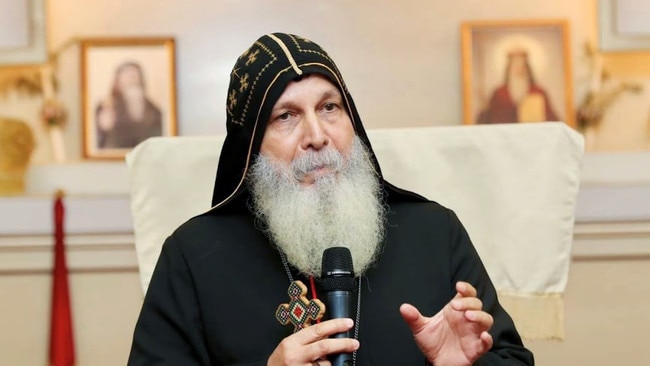
Islamist attacks on churches are scarcely isolated incidents. In France alone there were more than 600 attacks on Christian places of worship in 2020, culminating in the murder of three parishioners at Nice’s Basilica of Notre Dame by an Islamist carrying a Koran.
Meanwhile, violence against Christians remains endemic in the Arab Middle East, where the share of Christians in the population has, over the course of the past century, collapsed from around 14 per cent to barely 3 per cent.
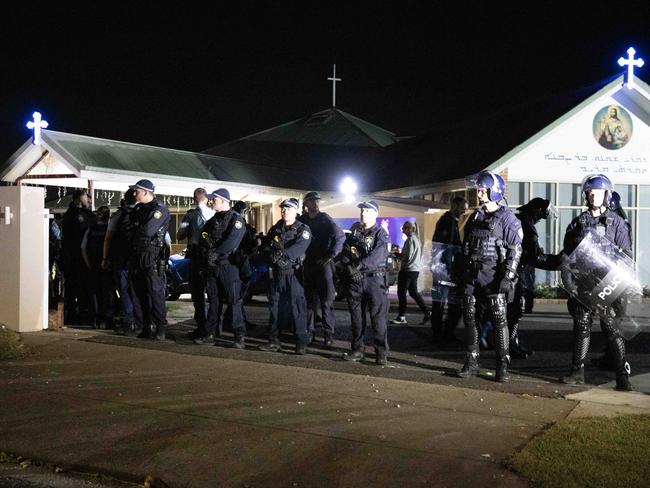
Seen in the longer term, the eradication of Christianity from its regions of birth appears even more starkly. In AD732, when Islam consolidated its hegemony over what later became the Arab lands, Christians were by far the majority of the population in the Oriental patriarchates of Alexandria, Antioch and Jerusalem, as well as in North Africa.
Now, after centuries of persecution, those ancient churches are becoming an insignificant presence, with their Middle Eastern congregations accounting for less than 1 per cent of Christians worldwide.

Whether that persecution has a clear basis in the Koran is controversial. It is, however, indisputable that the Koran directly condemns Christianity, claiming that Christians “accept two gods”, will not “tolerate you (Muslims) until you follow their religion” and wilfully lie about the Bible.
Moreover, the so-called “verse of the sword” – which, according to many Islamic scholars, abrogates the Koran’s more tolerant affirmations – enjoins Muslims to “slay the idolaters wherever you find them”, sparing them only if they “repent, perform the prayer and pay alms”.
And according to a tradition authoritatively reported by Malik ibn Anas (711-795), the Prophet’s last words were “May God fight the Jews and the Christians! Two religions will not remain in the land of the Arabs.”
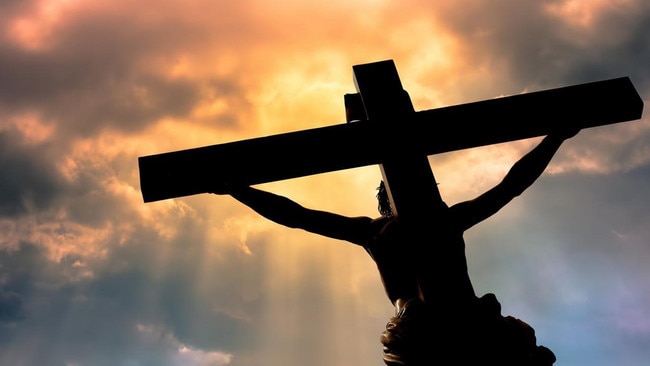
It is therefore unsurprising that the Muslim conquest was viewed by Mesopotamian Christians as an apocalyptic disaster, with the first substantial Christian commentary warning that there is “no truth to be found in the so-called prophet, only the shedding of men’s blood”.
The construction of the Dome of the Rock in Jerusalem, with the explicit denunciation of Christian belief in its magnificent gold leaf inscriptions, merely heightened their fears, which were confirmed when sweeping restrictions on Christian worship, along with deliberately humiliating rules of conduct and punitive taxes, were formalised in the mid-9th century.
Where those impositions were strictly enforced, as they were against the Copts in Egypt (the largest and most enduring Christian congregation in the Arab lands), the consequences were devastating – and they became even more severe as successive fiscal crises led to ever higher taxes being imposed on a shrinking population. After an endless series of massacres that decimated the Coptic dioceses, it was only in the 19th century that the modernisation of the Ottoman Empire, and the reforms enacted by Muhammad Ali Pasha’s dynasty in Egypt, brought significant relief.
But liberalisation did not prove durable anywhere in the Middle East. To begin with, the growing prosperity of the relatively well-educated Christian communities provoked resentments that were fanned by Muslim clerics, triggering a wave of violence that began with the Damascus riots of 1860.

At the same time, as Muslim rule tottered in the face of Western challenge, Muslim rulers increasingly relied on Islam to define national identity and galvanise popular opposition to Western pressures, effectively excluding non-Muslims from the emerging nations. And just as Islam became central to legitimating governance, Islam itself became ever more intransigent, reinvigorating Koranic theology’s most intolerant aspects and demolishing the hopes of reformers – such as the brilliant mid-19th century Young Ottomans – who sought to reconcile Islam with constitutional liberalism.
The consequences of those 19th-century developments ran through the 20th century like a blood-soaked thread. In the Ottoman Empire, they underpinned the Hamidian massacres of the Taurus Mountains’ Christian minorities in 1894-96, the genocide of the Chaldean-Assyrian Christians in 1914-15 and the Armenian genocide of 1915-16.
Even after the collapse of the empire, the formation of the Turkish republic and the Greco-Turkish population exchange of 1923 (which reduced the non-Muslim share of Turkey’s population from 20 per cent to 2.5 per cent), they continued to reverberate in the murderous riots of 1934, the discriminatory Wealth Tax of 1942 (that expropriated the remaining Armenian, Greek Orthodox and Jewish communities) and the explosion of violence against minorities in 1955.
Those incidents in the Turkish republic echoed throughout the Middle East. Nowhere, however, were the impacts more durable than in Egypt.
Having expropriated and expelled the Jews, who had lived in Egypt for millennia, Gamal Abdel Nasser robbed the Copts of 75 per cent of their assets and shut their schools. Nasser also modernised and enormously expanded al-Azhar, entrenching the ancient, and extremely conservative, Islamic university’s control over the country’s religious life, which was relentlessly wielded at the Copts’ expense.
It was, however, under Anwar Sadat – who made the promotion of Islam central to maintaining his fragile grip on power – that widespread religiously sanctioned violence against Christians started escalating.

After increasing in each decade, that violence reached a peak in the period immediately prior to, during and just after the short-lived rule of the Hamas-affiliated Muslim Brotherhood, when at least 150 Copts were murdered, many thousands rendered homeless, and Coptic churches and monasteries stormed – with 64 churches being attacked, and 23 incinerated, in a single day.
It is therefore unsurprising that 100,000 Copts fled Egypt between March and September 2011 alone; and since then the haemorrhage has continued, as have the murders, the kidnappings, rapes and forced conversions of young women, the destruction of homes and the coerced evacuations of Coptic villages.
Nor is that pattern confined to Egypt: its latest manifestation is the expulsion from their ancestral home of Karabakh’s entire Christian population, and the demolition of one of the Caucasus’s most iconic churches, by the Muslim government of Azerbaijan – all without a peep being heard from our keffiyeh-touting protesters.
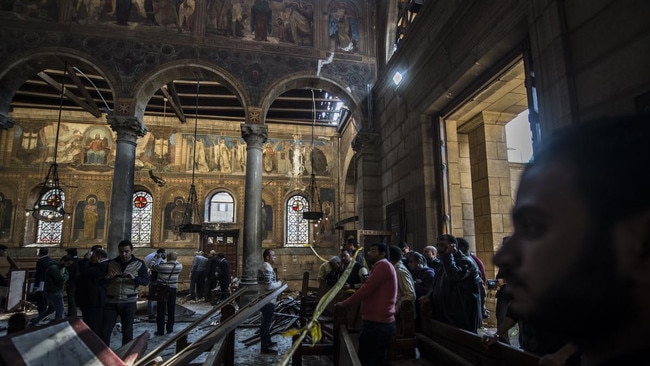
No doubt, some attacks on Christians are the work of extremists; but many are not. All too often they are sustained by the rhetoric of highly regarded clerics who demonise reformers (such as Egyptian Farag Foda, who was assassinated after being denounced by Islamic scholars linked to al-Azhar) and condone, or refuse to firmly condemn, religious violence. As Turkish intellectual Mustafa Akyol recently argued, “Islam’s problem is not just the Islamists; it’s the mainstream.”
Bernard Lewis famously stated some years ago that “for Christians and Muslims alike, tolerance is a new virtue and intolerance a new crime”. The great historian was only half right: Christianity has changed, but tolerance has scarcely made its mark in the Islamic world, and when it has, it has invariably struggled. With religious and ethnic diversity – and hence genuine religious freedom – vanishing in the Muslim countries, while Australia’s diversity inexorably rises, our much vaunted multiculturalism cannot be an excuse for tolerating a fanaticism that, still today, so readily morphs into murder.
More Coverage
 But what the incident confirms, were further confirmation needed, is the continued vehemence of Islamism’s hostility to Christianity.
But what the incident confirms, were further confirmation needed, is the continued vehemence of Islamism’s hostility to Christianity. It is therefore unsurprising that the Muslim conquest was viewed by Mesopotamian Christians as an apocalyptic disaster,
It is therefore unsurprising that the Muslim conquest was viewed by Mesopotamian Christians as an apocalyptic disaster,


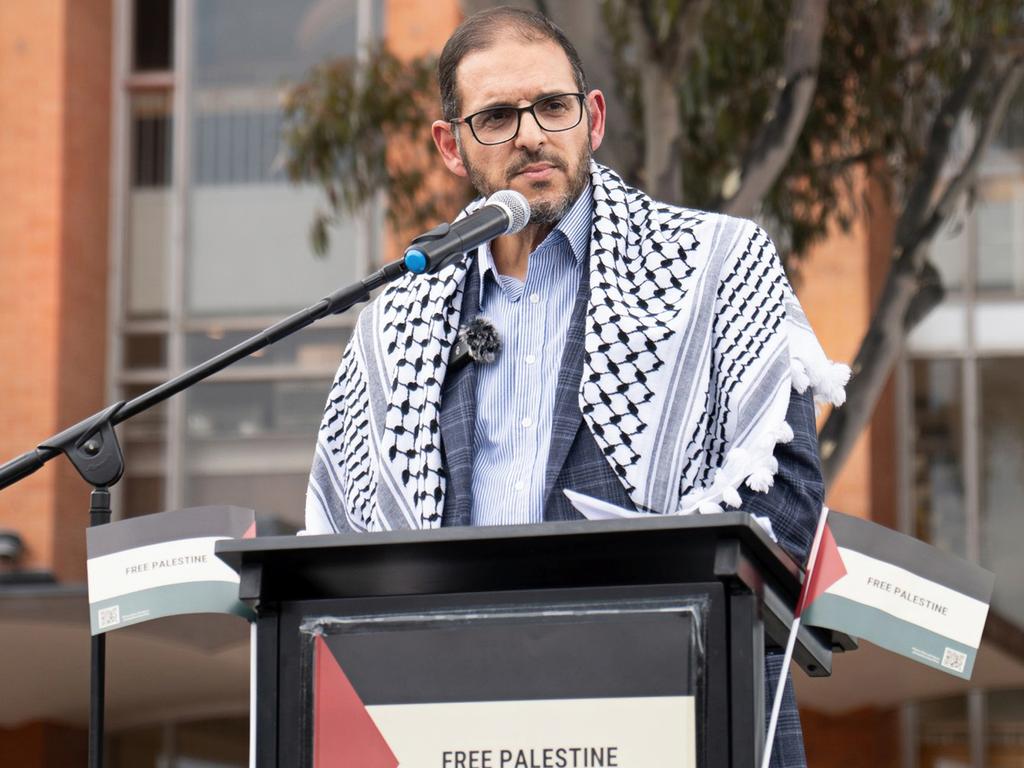


The guilt or innocence of the 16-year-old accused of stabbing Bishop Mar Mari Emmanuel and three others at Wakeley’s Assyrian Church of Christ the Good Shepherd last week will ultimately be tested in court, as will that of any accomplices. But what the incident confirms, were further confirmation needed, is the continued vehemence of Islamism’s hostility to Christianity.